- Home
- Anne Rivers Siddons
House Next Door Page 10
House Next Door Read online
Page 10
“No, we don’t,” said Walter. “Do you?”
“No.”
He didn’t say anything more for a moment, and then he said, “I haven’t seen many kids on the street. Is everybody old middle-aged folks like us? Not that you two are middle-aged, but…” His voice trailed off, and the strangeness of the moment grew. I knew without knowing how I knew that he did not want to seem to query us closely on the matter of children, but was for some reason impelled to it.
Walter answered, his voice neutral and guarded, and I knew that some of the easy liking he had felt for Buck Sheehan was being held in abeyance.
“There aren’t many, as a matter of fact,” he said. “The Guthries, on your left there, with the garden, have three, but they’re married and live out of town. The Jenningses over there have about a million, mostly in diapers, and they’re such pains in the behind that standard operating procedure is to tell them you’ll break their arms if they set foot in your house, so they shouldn’t be too much of a problem. The Swansons up the street have three teenagers. And that’s about it.”
“Teenagers. That’s nice. Are they boys or girls?”
“Boys,” I said. “The youngest is thirteen and the oldest is seventeen. They’re good kids. They’re no problem as far as noise or anything. Most of us use them for chores and yard work, and I’m sure they’d be happy to do some for you. But they certainly won’t bother you otherwise.”
I hadn’t meant to sound abrupt, but the strangeness was stretching out uncomfortably. Buck Sheehan said, “It isn’t that. I just wondered if there were any.” His smile was miserable and thinned with the effort to be ingratiating, and I felt again the vapor of strangeness around the man and woman in the Harralson house and a real pity for this nice man’s discomfiture.
“Well,” said Walter. “Back to the rock garden for me, and the digging out for you. Glad you all are here. Col will call about that dinner, and meanwhile, you certainly know where we live.”
“Thanks for coming over,” he replied. “And thanks for the flowers. We’ll be looking forward to the evening.”
“I’ll call,” I said, and we scuffed back down the path through the rhododendrons to our patio. I looked back once, and he had gone into the house. The doorstep was empty and the door closed. The lovely lines of the house seemed, in the settling shadows, to have shrugged more closely into the earth and trees, as if with a sigh of contentment. Warm light shone softly from the windows once again. A wood thrush, author of that most beautiful and liquid of all sounds, began his splashing song in the Harralsons’ woods—the Sheehans’ woods now—just as the lucid strains of Handel’s Water Music sprang to life in one of the Sheehans’ downstairs rooms. The unease and alienness of the past few minutes washed out of my mind at the twin sounds twining and soaring in the dusk, but then I saw Buck Sheehan come into the lighted kitchen and lean against the refrigerator and drop his face into his hands, and it came flooding back.
When we got home we did not talk about the Sheehans. I knew that we would eventually of course. But I felt tired and tumescent with a sort of gnawing disquiet that I could put no name to, and out of sorts because I could not identify the sensation and resented having it. Such feelings make me very lonely and a little frightened, because I am never more terribly, finally and irrevocably alone than when I cannot share my infrequent, fey sadnesses and neck prickles and intuitions with Walter. It is not that he laughs at them or fails to understand that I am uncomfortable. It is just that his is a sturdier and more sunlit nature than mine, and when I get twitches of what he calls The Sight, he is more apt to comfort and cajole and perhaps tease than to try and share them. It is one of the few areas in our natures that do not dovetail, and when I am in the grip of a nameless prickling that does not prickle him too, I know the shape of my final and inevitable aloneness on the earth. Walter is sensitive. I am, he says, a sensitive. Not in any silly, conventional psychic way; we have both always laughed at that. But in the fact that I feel currents and whorls and eddies keenly, even when, perhaps, they are not there.
So I did what I always do when my own ultimate aloneness stalks me. I wanted him quickly and silently and totally, to blot and blur and dissolve me into himself. I was nearly whimpering with the wanting. I drew him into the downstairs guest bedroom and urged him with my hands and with small sounds and cries, and, knowing and answering, he took me on top of the rowdy, faded old quilt that had been my grandmother’s, fast and driving and absolute in his determination to scourge and ream the fright and alienation out of me. He did. He always does. He knows. Walter has saved my life and perhaps my soul for me in countless ways, without having to search for the proper one, for all of our life together. It is the sum of what we are, he and I. When he can no longer do so, he will die with me.
“Doxy,” he said, lying on his back and staring at the ceiling. His breath still tore at his throat. “You didn’t even take off your shirt.”
“That word is right out of Thackeray or somebody,” I said comfortably, twining my leg over his and scratching his instep with my toe. I felt drained and eased and back in my skin again, and somehow into his too. “You need to learn some new words. Neither did you take off yours. Which is just as well, because you’d be scratched to pieces, and then what would you tell the boys in the locker room?”
“Tell ’em I had me a high-class ’ho on the side. My stock would rise no end.”
“Did you ever wish you did?” I said lazily, knowing that he didn’t.
“I do, don’t I?”
After a small space of time he said, “Do you feel better now?”
“Yes,” I said. “You know I do. But I don’t want to talk about the Sheehans right now, Walter.”
“I know you don’t. I wasn’t going to.”
My eyes flooded with sudden salt and my nose and throat ached. I rolled into his shoulder and buried my face in the hollow of his neck. He pulled me closer and stroked my hair, still damp with sweat.
“I love you more than anything in the world,” I said fiercely. “Anything.”
“And I love you, my darling,” he said. “It will be all right.”
10
I DID HAVE THE promised dinner party for the Sheehans on the next Saturday evening. It was a soft twilight edging into night when they came through the rhododendrons and around onto the patio. Roger and Claire had walked over early and were stretched out lazily, clinking ice in their first drinks, Claire on the chaise and Roger making a comfortable, rump-sprung bundle in our big Pawley’s Island hammock. Kim had come by earlier in the afternoon, and we’d asked him to stay, and he did. He didn’t, normally, when we were expecting other guests, but I thought he was probably curious about the new people who would live in the house. Charles and Virginia Guthrie had just arrived and were in the kitchen making themselves the chaste vermouth on the rocks that they prefer. Neither of the Guthries drinks very much.
I had called Anita Sheehan the Wednesday before, and the phone had rung a long time before she answered it.
“Hello?” Even on the telephone, she sounded apprehensive.
“Anita? This is Colquitt Kennedy, from next door. I hope I’m not disturbing you.”
“Oh, Colquitt. Yes. How are you? No, of course you’re not.” Her voice changed, became lighter, quicker, more assured. “I’m sorry I was so long answering,” she said. “I was wrestling with some curtains in the upstairs bedroom and didn’t hear the phone for a minute.”
“Well, I won’t keep you,” I said, knowing with absolute certainty that she had heard the phone and hadn’t wanted to answer it. What is this stupid prescience I’ve suddenly developed toward the silly Sheehans? I thought in annoyance. I’m not having any more of this. “I just hoped that you all would come have hamburgers with us and some friends on Saturday night,” I said. “Nothing fancy at all.”
There was stillness, and then she gathered her voice together and said, “We’d love to come Saturday night. We haven’t gone out much lately, and it’s hi
gh time we did. You’re kind to ask, and Buck will be so pleased. What time, and can I bring something?”
“About seven,” I said. “And nothing at all except yourselves and a big appetite. Walter cherishes the belief that he’s the Toscanini of the charcoal grill. And please be comfortable. We’ll all have on slacks or shorts. Just come on through the shrubbery and around the back to the patio. You can see it from the edge of the driveway.”
“Thank you, Colquitt. We’ll see you at seven on Saturday.”
We had been filling in Kim and the Swansons on what we knew of the Sheehans. Charles and Virginia came out of the kitchen and sat down on the edge of the brick wall to listen. Somehow, after the pain and horror of the young Harralsons, neighborhood curiosity did not run as high about the new owners of the house as it usually does when, infrequently, a house on our street changes hands. I think we were all still shocked and hurt and obscurely afraid to open ourselves to new involvements. But there they were; by their very proximity, we would be involved with the Sheehans.
“He’s branch manager at Computer Tech,” Walter said, judiciously poking at his whitening coals. “I get the idea he was a real hotshot in computers, and for some reason I think he must have been in sales. He’s got the personality for it—genial and outgoing, though he doesn’t clap you on the back or smoke cigars, thank God. He’s a nice guy. There’s some money around somewhere—you can smell it. I’d say the Sheehans are about as lace-curtain as they come. He seemed really anxious to be friends.”
Claire and Virginia looked at me, waiting for me to perform my part of the ritual and tell them about Anita. Claire was rumpled and solid in shorts and a sleeveless shirt, perspiration dewing her short upper lip and brown snub nose. Virginia was in white linen pants and a striped jersey and managed to look like a duchess opening a cattle fair. I looked back at them; I did not know why I was reluctant to talk about Anita Sheehan.
“Well, for God’s sake, Col, what about her?” Claire said impatiently. “Does she weigh three hundred pounds and have a mustache? Is she redheaded and freckle-faced, does she go around saying, ‘Wurra, wurra’? Is she a midget? What?”
“She’s haunted,” I said mindlessly, and then looked helplessly at Walter. I did not know why I had said that. It was not a word for this twilit suburban backyard. It should not have been said. It hung there, swelling in the evening and absorbing the very air. Kim Dougherty raised his head and looked at me, his gray eyes darkened and still.
Virginia murmured wordlessly in distress, a gentle reprimand. Claire snorted. “Bullshit. What’s got into you, Col?” Charles Guthrie looked apprehensively at Walter and then at me, and Roger Swanson just stared at me. Walter did too for a moment, and then he said, “Colquitt’s being fey again. Cut her off the vodka, Roger. There’s nothing in the world wrong with Anita Sheehan except that she’s the shyest woman I ever met in my life. One of the most spectacular too. A great addition to the neighborhood. Charles, you lucky devil, their upstairs bathroom must look right down into your backyard. I give you about two weeks before you get yourself a pair of binoculars and take up bird-watching.”
“I already have a pair,” Charles Guthrie said seriously, and we all laughed. Charles is dignified and cultivated and literate, and possessed of not one shred of the bantering humor that Walter and Roger exchange. Somehow it has not marred the friendship between them. They complement each other, and Charles and Virginia are almost ludicrously well matched. For all her elegance and coolness of demeanor, Virginia is a warm, strong, supportive woman. A born nurturer. Though they are not demonstrative toward each other in public, I have seen Virginia take her husband’s arm and give it a small, affectionate squeeze—it is the only intimacy I have ever seen between them—and when she does, he looks at her with a sort of awe and wonder that is as touching and revealing as it is totally unconscious. He cherishes her. She keeps his carefully wrought world spinning smoothly in its orbit.
The laughter broke the strangeness, and I said, embarrassed, “She is shy. That’s all I meant. And she’s sort of nervous. Buck said she’d been very ill and in the hospital for a long time; she’s just out. You know how strange and frail people are when they’re getting over a long illness. But apparently she’s going to be okay.”
“This illness of Anita Sheehan’s, Colquitt—what sort was it?” said Virginia Guthrie. The concern in her voice was genuine. Without being a professional do gooder, Virginia is the one we all count on when there is illness and trouble. Quietly and efficiently, she is there, soothing fright and taking phone calls and doing the marketing and sitting long hours with bored, uncomfortable convalescents. She has never alluded to it, but I know that when old Mr. Fortenberry was dying, it was Virginia and not the cowed and hysterical Misses Adelaide and Jimmie who sat beside his bed in the long, hot, pain-wracked afternoons and read aloud to him from Macaulay and Toynbee.
“I don’t know,” I said. “Just that it must have been pretty bad. She’s awfully thin, and he’s terribly protective of her. Really very sweet.”
The rhododendrons parted, and we heard Buck Sheehan’s voice calling, “I heard there was a party over here someplace.” Everyone straightened up and looked toward the driveway, and Walter went to meet them.
Anita Sheehan was valiant that night. I never saw such strength of pure will. She was whip-slim and upright in yellow slacks and a vivid yellow-and-orange-print silk shirt that lit her thin, lovely face with color. Her lightless black hair was pulled back and tied with a silk kerchief, and only when you were very close to her did you notice the almost imperceptible tremor that played around her mouth and thrilled through her hands. Her face glowed with perfectly applied makeup, and she wore brilliant red lipstick like a banner. Her smile was nearly steady and her eyes met ours without the spectral ring of white, without sliding away, and her voice was light and gay and said the proper meeting-people things. I wondered if I was the only one who sensed the little winds of fear and strangeness that seemed to whip around her, but then I caught a warmer, softer note in Claire’s voice as she introduced herself, and saw Virginia reach out gently and take her arm and draw her to the chaise that lies partly in the shadows of an overhanging dogwood at the edge of our patio, away from the yellow lights, and I knew that I was not. Kim sensed the slight skew in normalcy too. He said little during the evening, but he watched her steadily and gravely, and there was a gentleness on his saturnine face that I had not often seen. Gentleness, and something else I could not put a name to.
Walter and Roger and Charles were marvelous, enfolding Buck Sheehan in the circle of their friendship as though he had been a part of it for years. They are not usually so quick to do that with strangers. Favorite anecdotes were brought out for his approval, and he did approve, laughing in his deep, delighted child’s way and offering his own in return. He shook his head at Walter’s offer of a drink and drank Tab all evening, saying only that he was determined to get fifteen pounds of flab off if it killed him, and no one pressed him.
He talked of his business as men do when they meet and listened to their talk of theirs. It turned out that Walter was right; he had been a top-notch salesman, with what Walter told me later was a truly astounding record with his computer company in New Jersey. It did not seem strange to us then, knowing what we did about Anita’s illness, that he would leave such a position and the life it must have bought him to come to a strange city so far away, to take charge of a company that was so much smaller than his old one. Walter said later that he’d just assumed Buck had gotten a tremendous deal out of the move, probably a big piece of the company and a salary handsome enough to compensate for the dazzling commissions.
He talked little of the life they had left and almost not at all about their personal history, but that too we put down to a natural reluctance to talk about the time of his wife’s illness. He seemed buoyant and truly excited about the future he hoped to build in the city, and about the peace and serenity of the neighborhood and the beauty and rightness of the
house. He paid fervent and extravagant compliments to Kim Dougherty when he learned who he was, and Kim accepted them with a clipped brevity that might have passed for modesty. Buck entered into the evening fully and openly and naturally, but he did not leave his wife’s side.
The evening was going well, I thought. Anita Sheehan sipped at a glass of Chablis and responded to our chatter with an effort that was, at first, near heroic, and I suppose we all liked and admired her for it. Courage must be given its due, no matter what it masks. Gradually, during the evening, she began to relax, very, very slowly. After an hour or so she left her rigid perch on the edge of the chaise and slipped back to rest her head against its cushions and put her feet up, and by the time Walter got around to the hamburgers she was laughing, tentatively and with a rusty, unused little sound, but laughing, at some foolishness between Claire and Roger.
It was obvious that she loved her house. She was shy with Kim, but her words of appreciation to him rang real, and the only spontaneous animation I saw in her face all evening was when Virginia Guthrie told her she thought it was probably the most beautiful house she had ever seen. That was simply more of Virginia’s sweetness talking, I knew. She had gradually come to admire the unmistakable artistry of Kim’s design, but she still did not like the house. But Anita’s face bloomed, and I was glad I could warmly and truly say, “I do too. I really do. I didn’t think I was going to like anything contemporary there, and if the truth be known, I thought I was going to hate anything at all, because the lot is so close to ours. I wasn’t so wild about my redheaded friend here either, because he designed it. But now I have to admit that it’s probably the greatest house I’ve ever seen.”

 Colony
Colony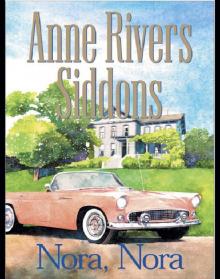 Nora, Nora
Nora, Nora House Next Door
House Next Door Homeplace
Homeplace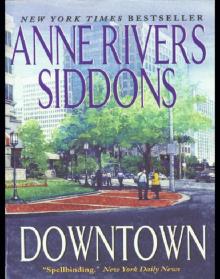 Downtown
Downtown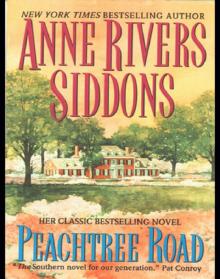 Peachtree Road
Peachtree Road Sweetwater Creek
Sweetwater Creek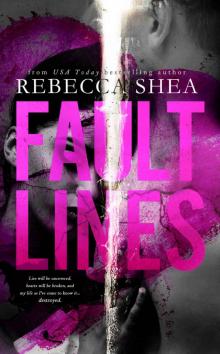 Fault Lines
Fault Lines Low Country
Low Country The Girls of August
The Girls of August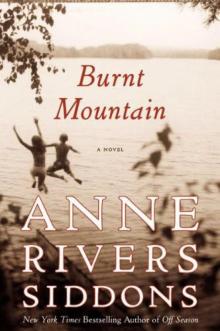 Burnt Mountain
Burnt Mountain Islands
Islands